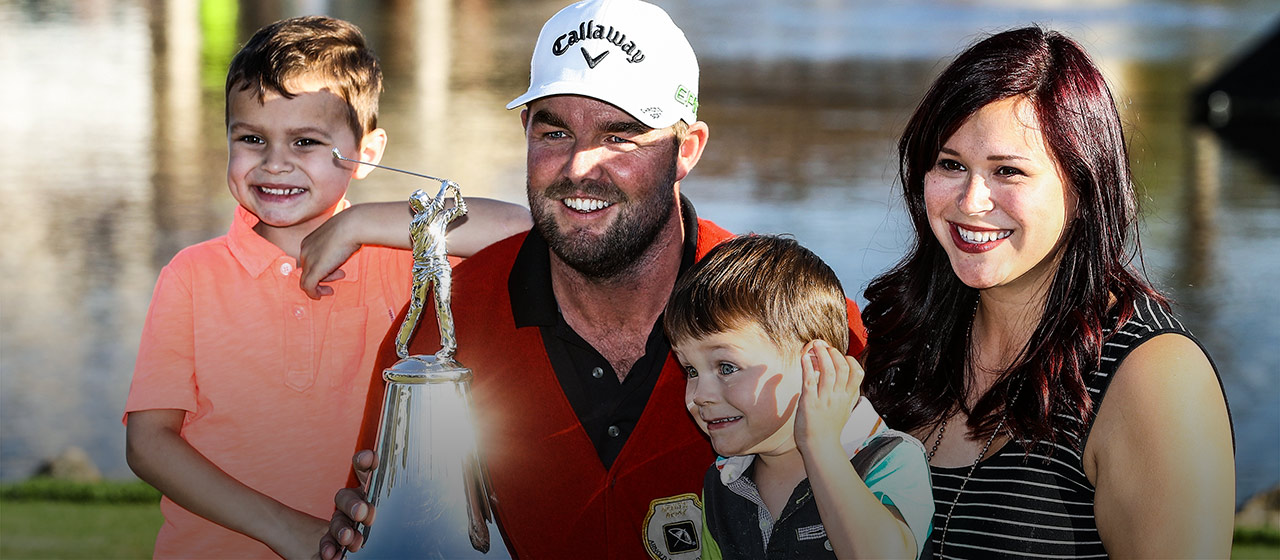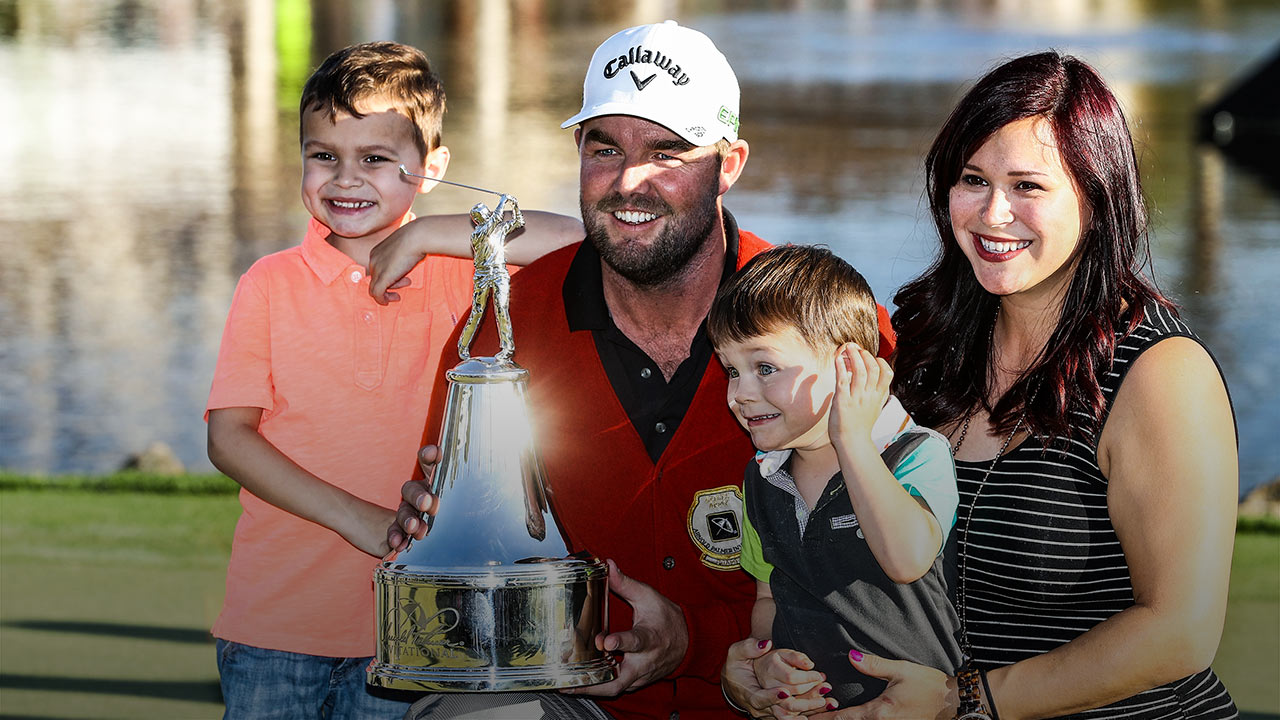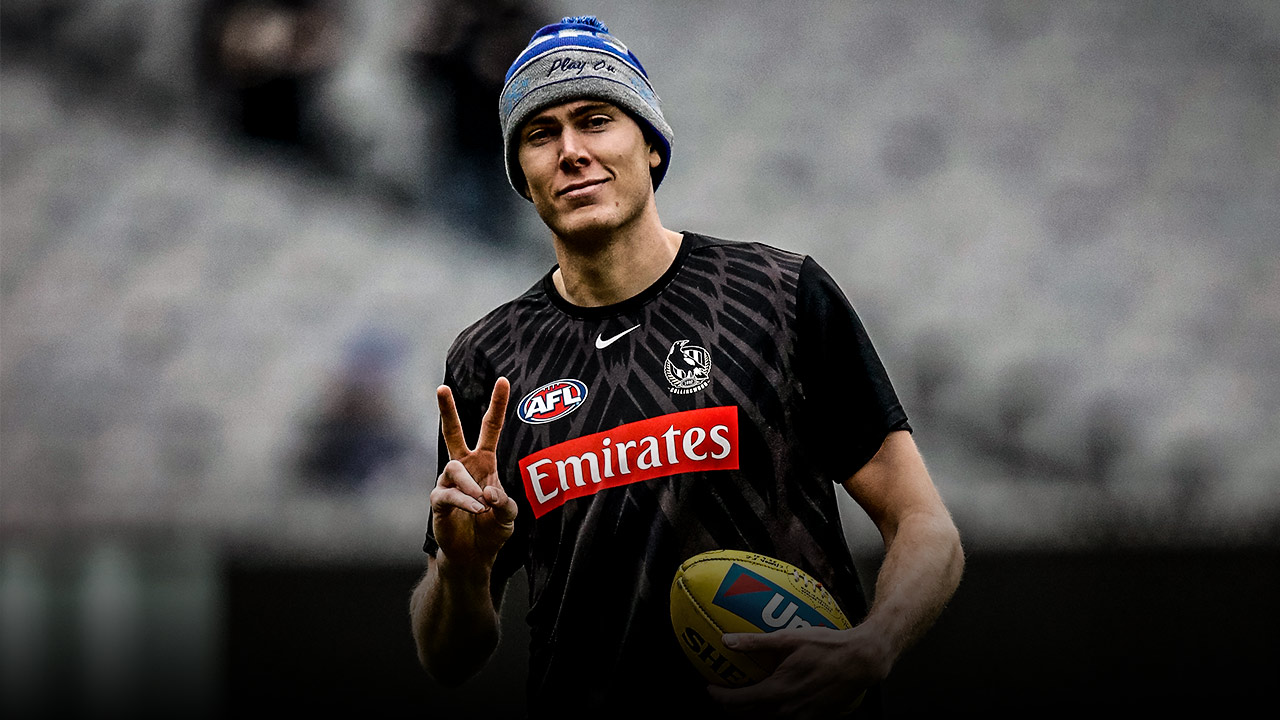Golf
A 5% chance of survival
I was standing at Audrey’s bedside hoping the words I was saying weren’t going to be the last she ever heard.
I had a thousand thoughts running through my head. What would I want to hear if it was me lying on the hospital bed? How am I going to raise our boys, Harvey and Oliver, by myself? Why us? Why Audrey?
The last thing my wife had said to me was, ‘Look after the cats.’ Then she passed out from lack of oxygen. Those four words were enough to do that.
She was sedated, a breathing tube shoved down her throat and the machine took over her breathing. She was placed in an induced coma. For how long nobody knew. Would she ever wake up?
The sound of the breathing machine is something I’ll never forget. Even now, when I hear something similar to that sound, it makes me feel uneasy.
Imagine that the normal amount of air you breathe goes through a garden hose. Now imagine trying to breathe that same amount of air through a drinking straw. That’s the sound I heard for the best part of a week.
Toxic Shock Syndrome and Sepsis are not as rare as people think. More than 250,000 Americans are killed every year from Sepsis. In Audrey’s case, it started with a tampon. She became more and more ill over the course of a few days but we had no idea what was actually happening. I was in Augusta preparing for the Masters. Fortunately, Audrey’s best friend, Angela, rushed her to hospital as the symptoms grew worse.
I left Augusta immediately to be by her side. I couldn’t believe how sick she was. The doctor told me she had a five percent chance of survival. In addition to TSS, she was also suffering Acute Respiratory Distress Syndrome.
The doctor made a decision that might have saved her life. He rolled her onto her stomach. That allowed the fluid that had built up in her lungs to drain.
The week Audrey was intubated was the longest week of my life. I didn’t sleep even though I was exhausted. And I didn’t eat for most of the week, which is very unlike me. I was juggling meetings with doctors, spending time with my three- and one-year-old boys and generally just trying to keep it together.
Harvey was old enough to know something was wrong. I kept trying to reassure him by saying, ‘She’ll be home soon.’ But I didn’t know if that was true.
When Audrey finally woke up, I can’t remember exactly what I said. I was a sleep-deprived mess and she wasn’t strong enough to lift the phone or even speak.
The day she was taken off the breathing machine I remember breaking down crying with relief. I later backed my ute into a pole reversing out of the hospital. I didn’t care or react.
It was the lack of sleep and the sheer relief that Audrey was going to survive.
PERSPECTIVE & THE OPEN
Fast forward three months.
I’m leading The Open Championship at St Andrews. After going through what we did in April, golf had almost seemed irrelevant.
To work so hard your whole life to have the chance to win a major – the major for an Australian golfer – the sense of calmness I felt the whole day was unexpected.
I never felt nervous. I was experiencing the biggest moment of my golfing life and I really felt nothing.
I wasn’t as pumped as I thought I’d be when I qualified in a three-way play-off with Zach Johnson and Louis Oosthuizen and the disappointment of losing that play-off to Zach didn’t really bother me.
I was just happy to have a complete family to be going home to.
The day she was taken off the breathing machine I remember breaking down crying with relief. I later backed my ute into a pole reversing out of the hospital. I didn’t care or react.
Three months earlier it was looking like I’d be giving the game away indefinitely to be the best Dad I could be for Harvey and Oliver. That’s always been the most important thing for me. Obviously, golf is my job and I love it but, at the end of the day, family is everything. After almost having that taken away from me, it certainly gave me an improved perspective on life.
It didn’t matter how many trophies I had at home. If I didn’t have anyone to share them with they would mean nothing.
We have always lived by the motto that it’s not important if you win or lose, but how you win and how you handle a tough loss. That’s what I want to teach my kids.
If all this had happened a year earlier, I would’ve taken the loss a lot harder. The new outlook on life definitely helped me deal with it but, looking back, I think I may have had too much of a carefree attitude in that playoff as well. That didn’t turn out to be a great thing.

LONG ROAD FROM WARRNAMBOOL
Golf was always a game that I loved and, from an early age, I always wanted to compete against the best.
My parents, Paul and Pelita, and sister, Kirsty, were and still are so supportive of me. They sacrificed so much. Growing up in Warrnambool, a small coastal town in south-west Victoria, certainly had its challenges, but I wouldn’t change them for anything.
I had a great childhood, playing pretty much anything outside that involved a ball.
We wore a groove in the road between Warrnambool and Melbourne. From the age of 15, we drove almost every weekend from home to the tournaments in Melbourne so I could play against the best.
My thinking was and has always been: you can’t beat the best if you’re not competing with them.
I played Melbourne pennant for Commonwealth Golf Club and I always wanted to play number one. That generally meant you were going to play the best player from the opposing club.
I wasn’t the best player in the club. I was young but I wanted the responsibility and, more importantly, to test my game. That has never stopped.
We have always lived by the motto that it’s not important if you win or lose, but how you win and how you handle a tough loss. That’s what I want to teach my kids.
I didn’t have ‘normal’ idols growing up. Warrnambool is an AFL and cricket town. Pretty much any other sport was considered irrelevant, especially golf.
My idol wasn’t an AFL player or cricketer (although most of the Australian cricket team were high on my list and I was always wearing my Richmond footy jumper). They were Greg Norman and Ernie Els. In putting competitions with my mates, I was always Ernie and was lucky enough to play with him on my first Presidents Cup team.
That was a ‘pinch myself’ moment. Sitting down with Ernie and having a few beers after the Presidents Cup was amazing. I have only experienced a few of those moments in my career.
I’ve always set my goals pretty high but I’ve never been vocal about them.
Sometimes I haven’t told anyone.
My thinking has always been: someone has to win, why not me? At the end of the day we are just blokes trying to get a ball into a hole in the least amount of shots. Why complicate it?
There’s a lot of time to think in golf and having one of my best mates, Matty Kelly, caddy for me for the last 10 years has really helped me keep it simple.
I don’t change clubs often. I’ve had the same coach since I was 17. My thinking is: what got me here is going to keep me here.
I’m a loyal person, I have a small circle of close friends but I’m friendly with everyone. The best advice my parents ever gave me was treat others as you want to be treated. I live by that.
I’m also big on manners. It costs nothing to be nice and, in my opinion, it takes up way more energy to be an arse. I’m ingraining that into my kids now. They get nothing without a ‘please’ and ‘thank you’.

TIGER & WHITE PANTS
The first time I truly got to test myself against the world’s best was the 2009 BMW Championship.
It was my first time in the final group of a PGA Tour event and I was playing with Tiger Woods. He had been dominating all year and all of a sudden a rookie pro from Warrnambool was standing on the first tee with Tiger.
I thought to myself, ‘Maybe white pants weren’t the best choice today!’
I ended up shooting a bogey free 68 and finished tied for second. It was my first real ‘I’ve made it’ moment.
I’ve been lucky enough to win three PGA Tour events including the Arnold Palmer Invitational and the BMW Championship earlier this year.
Every tournament I play in I try and learn something, whether it be about my game or myself. A lot of the time it’s little things like knowing when to attack and when to be conservative. But it’s those same things that might save you one shot. That shot could be the difference between being in a playoff and winning outright.
It’s much easier to learn from things that don’t turn out as you planned. That happens a lot in golf. There are 156 players in most tournaments and only one winner.
The odds aren’t exactly in your favour, but who worries about odds? Beating the odds makes it all the more satisfying.
Just ask my wife, who fought back from that five percent survival rate. She didn’t roll over and give up the fight. Now we have two boys, a healthy Mum and, in July this year, our miracle baby, Eva. Sometimes odds are there to be beaten.
Obviously, golf is my job and I love it but, at the end of the day, family is everything. After almost having that taken away from me, it certainly gave me an improved perspective on life.
After everything we went through, it was a little different feeling when Eva was born. I was a lot more worried about Audrey and her recovery as she’s twice as likely to get Sepsis again having had it before.
You never know what your children are going to do with their lives. You just hope you raise them well and they have the gift of heart and happiness. With Eva, we know how lucky we are.
It has to be said that having the support of your family is one of the most important things in our sport, the amount of time we travel and the load that puts on them when I’m away is huge.
Having their support makes the time away to do our jobs so much easier. I have so much respect for the military families that have to endure long deployments, months away at a time.
I can’t imagine being away from my family that long. Those families are the real heroes.
WHERE TO NOW
I just returned home after two weeks in Korea and China. It’s a good time to reflect on what has been a great year both on and off the course – two wins and a couple of other chances, including a playoff loss in Korea – before heading to the Gold Coast for the Australian PGA Championship at the end of the month.
I’d like to do everything better next year. It’s the small things that make the biggest differences. If I can achieve that, the results will take care of themselves.
Away from golf, the Begin Again Foundation which we set up is starting to grow and helping a lot of families through hard times.
In the last two years we’ve assisted over 1,100 families.
I’ve learned over the last few years never to take anything for granted. Your world can be tipped on its head in the blink of an eye.
Live for today. Enjoy now. Because you don’t know what tomorrow will bring.
More about: Marc Leishman | Military | PGA Tour | Resilience | Tiger Woods






 Load More
Load More